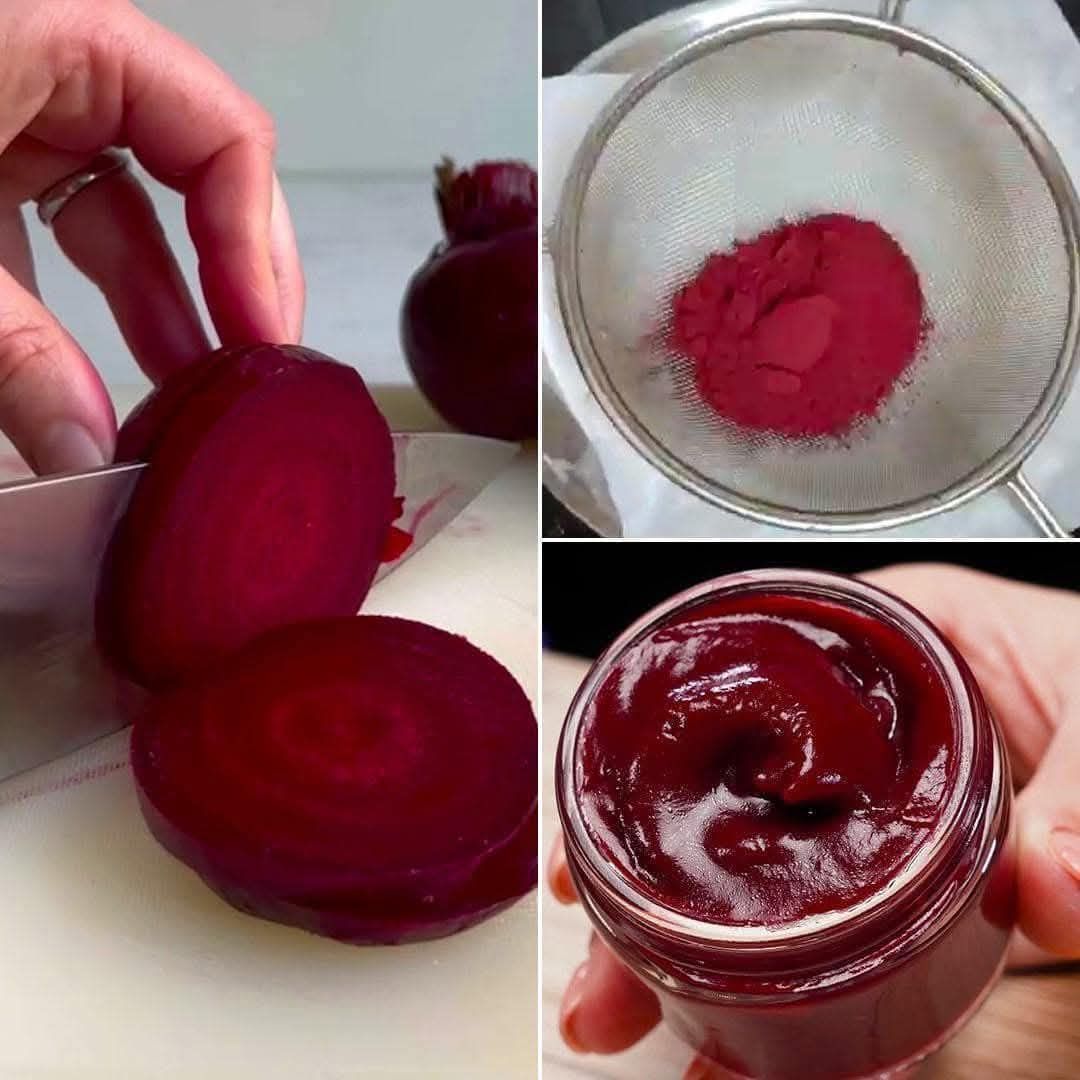Beetroot, often overshadowed by flashier vegetables, is an extraordinary superfood that offers a range of health benefits, many of which are not widely recognized. From boosting heart health to improving athletic performance, this humble root vegetable deserves a prominent place in your diet. It’s not just its vibrant red color that makes beetroot special—it’s the wealth of nutrients and health-boosting properties packed into every bite. Here’s why beetroot is an underrated wonder of nature and why you should consider adding it to your daily routine.
Packed with Nutrients
Beetroot is a nutrient-dense food that is low in calories yet rich in essential vitamins, minerals, and dietary fiber. It is a powerhouse of nutrition that can contribute to overall health and wellness. Some of the key nutrients found in beetroot include:
- Vitamins: Beetroot is an excellent source of vitamin B6, which is vital for brain function and energy metabolism. It’s also rich in vitamin C, a powerful antioxidant that helps protect the body from free radical damage and boosts immune function. Additionally, beetroot contains folate, which plays a crucial role in DNA synthesis and cell growth.
- Minerals: This root vegetable is a good source of important minerals like potassium, iron, and manganese. Potassium helps regulate blood pressure and fluid balance in the body, while iron is crucial for the formation of hemoglobin and the transport of oxygen in the blood. Manganese supports bone health and acts as an antioxidant.
- Fiber: Beetroot is packed with dietary fiber, which is essential for digestive health. Fiber helps regulate bowel movements, prevents constipation, and promotes a healthy gut microbiome. It also contributes to a feeling of fullness, which can aid in weight management.
By incorporating beetroot into your meals, you’re ensuring a steady supply of essential nutrients that promote overall well-being.
Boosts Heart Health
Beetroot is known for its cardiovascular benefits, particularly its ability to improve blood pressure and circulation. One of the key components responsible for this is the high nitrate content in beetroot. Nitrates are naturally occurring compounds that the body can convert into nitric oxide, a molecule that helps relax and widen blood vessels, thereby improving blood flow.
By improving blood circulation, beetroot helps lower blood pressure, which reduces the strain on the heart. Regular consumption of beetroot can help prevent high blood pressure, a major risk factor for heart disease and stroke. Some studies have shown that drinking beetroot juice can lower blood pressure in a matter of hours, making it an excellent choice for those looking to improve their heart health.
In addition to nitrates, beetroot is also rich in antioxidants, which help reduce oxidative stress and inflammation in the body. This combination of anti-inflammatory and antioxidant properties contributes to better overall cardiovascular health.
Enhances Athletic Performance
Beetroot has become a popular food among athletes and fitness enthusiasts due to its ability to enhance performance. As mentioned earlier, the nitrates in beetroot play a significant role in improving oxygen efficiency. When consumed before exercise, beetroot juice has been shown to enhance endurance and stamina, allowing athletes to perform at higher intensities for longer periods of time.
The reason for this is that the body uses the nitric oxide produced from beetroot nitrates to increase blood flow to muscles during physical activity. This means more oxygen and nutrients are delivered to the muscles, helping them function more efficiently and reducing fatigue. Studies have shown that beetroot juice can improve endurance during both aerobic and high-intensity exercises.
Beetroot’s ability to improve oxygen delivery to muscles can also aid in recovery after exercise. By promoting better blood flow, beetroot can help reduce muscle soreness and accelerate recovery times, making it an ideal post-workout snack.
Detoxifies the Body
Beetroot is a natural detoxifier, thanks to its rich content of betalains, a group of powerful antioxidant compounds. Betalains support the liver’s detoxification processes by promoting the elimination of toxins and waste products from the body. This makes beetroot an excellent addition to any detox regimen, helping to cleanse and refresh the body from within.
Beetroot has also been shown to improve liver function, which is crucial for the detoxification process. The liver plays a vital role in breaking down and eliminating harmful substances from the body, and beetroot can help support this process by stimulating liver enzymes and promoting the flow of bile.
By incorporating beetroot into your diet, you’re helping your body naturally detoxify, which can lead to increased energy levels, improved digestion, and better overall health.
Improves Brain Function
Beetroot’s ability to enhance blood flow is not limited to the heart and muscles—it also benefits the brain. As we age, blood flow to the brain can decrease, leading to cognitive decline and an increased risk of neurodegenerative diseases like Alzheimer’s. However, studies have shown that consuming beetroot can help improve blood flow to the brain, potentially delaying cognitive decline.
The increased blood flow delivers more oxygen and nutrients to brain cells, which can enhance brain function, improve focus, and increase mental clarity. For individuals looking to boost their cognitive performance or support brain health as they age, beetroot is a simple and effective addition to the diet.
Fights Inflammation
Chronic inflammation is a major contributor to a variety of health conditions, including arthritis, heart disease, and diabetes. Beetroot is rich in betalains, which have potent anti-inflammatory properties. These compounds help reduce inflammation in the body, which can alleviate symptoms associated with inflammatory conditions such as joint pain and stiffness.
By incorporating beetroot into your diet, you can help manage chronic inflammation and reduce your risk of developing inflammation-related diseases. This makes beetroot a valuable food for those looking to maintain a healthy inflammatory response and prevent the onset of chronic diseases.
Supports Healthy Skin
Beetroot’s antioxidant and vitamin C content makes it an excellent food for promoting healthy, glowing skin. Vitamin C is essential for collagen production, which is necessary for maintaining skin elasticity and preventing wrinkles. Additionally, the antioxidants in beetroot help protect the skin from free radical damage caused by environmental factors such as pollution and UV rays.
Regular consumption of beetroot can help improve skin tone, reduce the appearance of fine lines, and promote a youthful complexion. For those looking for natural ways to support skin health, beetroot is an excellent addition to the diet.
Aids in Weight Management
Beetroot is a low-calorie, nutrient-dense food that can help support weight loss and weight management. Its high fiber content helps promote feelings of fullness, reducing the likelihood of overeating and snacking between meals. Additionally, the natural sugars in beetroot are released slowly into the bloodstream, preventing blood sugar spikes and crashes that can lead to cravings and overeating.
By adding beetroot to your diet, you can enjoy a satisfying and nutritious food that helps regulate appetite, supports healthy digestion, and contributes to a balanced diet—all of which are essential for maintaining a healthy weight.
Helps Control Blood Sugar
For individuals with diabetes or those looking to stabilize their blood sugar levels, beetroot is an excellent choice. The natural sugars in beetroot are released gradually into the bloodstream, preventing rapid spikes in blood sugar. This makes beetroot a safe and healthy food for those managing blood sugar levels.
In addition, the high fiber content of beetroot helps regulate blood sugar by slowing the absorption of glucose into the bloodstream. This can help prevent sudden spikes and crashes in blood sugar, making beetroot a valuable food for anyone looking to maintain healthy blood sugar levels.
Versatile and Delicious
One of the best things about beetroot is its versatility in the kitchen. Whether you enjoy it raw, roasted, juiced, or blended into smoothies and soups, beetroot can be incorporated into a wide variety of dishes. Its earthy sweetness pairs well with both savory and sweet flavors, making it an ideal ingredient for salads, stews, and even desserts.
- Raw: Grate raw beetroot into salads for a crunchy texture and vibrant color.
- Roasted: Roast beetroot in the oven to bring out its natural sweetness. It pairs well with roasted vegetables or can be served as a side dish.
- Juiced: Fresh beetroot juice is a refreshing and nutrient-packed beverage. It’s perfect for a morning boost or pre-workout drink.
- Blended: Add beetroot to smoothies for an extra burst of nutrients. It pairs well with fruits like berries, apples, and citrus.
Quick Tip:
If you’re looking for an easy way to incorporate beetroot into your routine, try drinking fresh beetroot juice before your workouts. It will give you a natural energy boost and improve your athletic performance. Alternatively, grate some raw beetroot into your salads for an instant nutrient boost.
Conclusion
Beetroot is a nutritional powerhouse that is often overlooked in favor of more popular superfoods. However, its impressive array of health benefits—ranging from heart health and brain function to skin health and detoxification—make it a must-have in any balanced diet. By incorporating beetroot into your meals, you can harness the hidden power of this underestimated vegetable and elevate your overall well-being. Whether you enjoy it raw, roasted, or juiced, beetroot is a versatile and delicious addition to any diet that can help support your health in numerous ways. So don’t underestimate this vibrant vegetable—make beetroot a part of your daily routine and enjoy its many health benefits!





